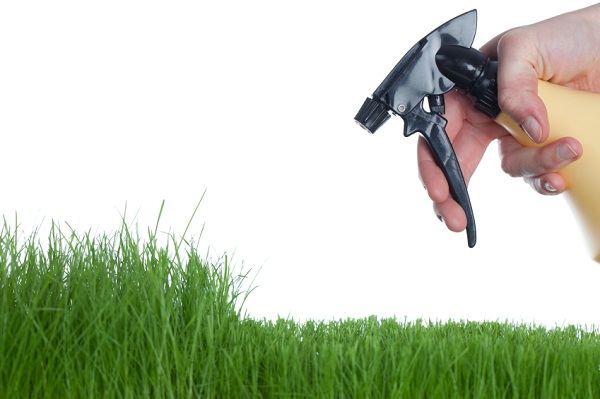Living in a city exposes you to traffic, pollution, and…pesticides? A study from the National Institutes of Health shows people living in New York City are more likely to have pesticides in their bodies than those living in less urban areas. And we know that pesticides negatively impact the developing bodies of children and babies more than adults.
The Environmental Protection Agency notes that children may be more sensitive to pesticides because their bodies are still developing. Plus, in relation to their body weight, they eat more than adults, possibly increasing their exposure to pesticides. According to Healthy Child, Healthy World, farmers and other people who work with conventionally grown crops show a heightened risk of asthma, leukemia, and prostate cancer. For those reasons, the potential impact of pesticides on small, developing bodies is cause for concern.
So, how do you avoid pesticide exposure when you reside in a concrete jungle and not a green one? Naturopathic doctor Thalia Farshchian offers these tips to help you reduce the environmental toxins in your life (healthy advice any family might benefit from regardless of your zip code).
1) Buy Organic. You can find affordable organic produce at farmers' markets. Vendors at these markets sometimes give deals in the half hour or so before the market closes for the day since they want to get rid of the produce they brought. You can search the Web for your local Farmers’ Market Federation to find a market near you. If organic is out of your price range, do what you can and buy organic produce for the dirty dozen. These are the 12 fruits and vegetables shown to have the most pesticides when conventionally grown. The "clean 15" are non-organic fruits and veggies that are safe to eat (usually items with thick skin). Click here and enter your email address for a free PDF print out of the "dirty dozen" and "clean 15" lists, or follow the links to an iPhone or Android app.
2) Veggie Wash! Regardless if organic or non-organic, wash your vegetables and fruits thoroughly. It is not only cleaner, but extends the shelf life of your produce. According to Christopher Gavigan, half of our lifetime exposure to pesticides occurs in the first five years of life since kids eat more fruits and veggies pound-for-pound than adults. It's especially important to give produce a good washing before serving it to children.
3) Remove your shoes. According to the EPA, pesticides often make their way into our homes via contaminated dust and soil on the bottoms of our shoes. Leaving your shoes at the door stops these pesticides in their tracks and (for the most part) keeps them out of your home. (We wrote this handy DIY showing how to make a shoe tray to remind your family to take off their shoes when they walk inside your home).
4) Open up detoxification pathways. Major pathways include sweating, bowel movements, and urination. Sauna therapy, drinking plenty of water, and daily bowel movements can help ensure toxins exit your system.
5) Take care of your filter – the liver. Our liver takes on what we breathe, eat, drink, and absorb via our skin. It is important to lessen the load when possible by eating unprocessed foods and incorporating all of the above recommendations.
We aim to provide you with the most honest and credible information possible. This article was reviewed for accuracy by The Honest Team and was written based on sources that are linked at the bottom of the article.
blog_review_statement




